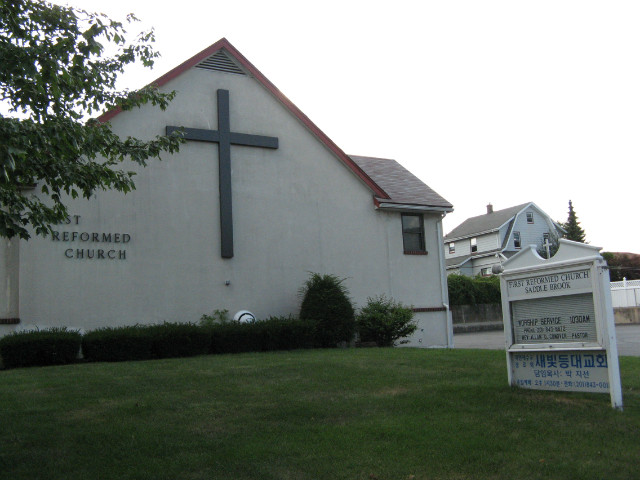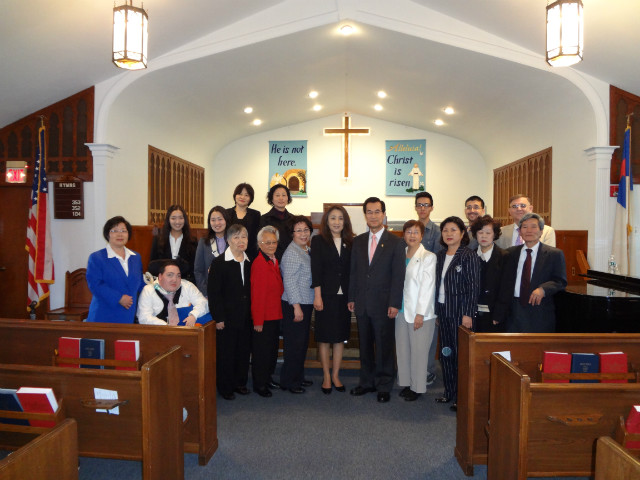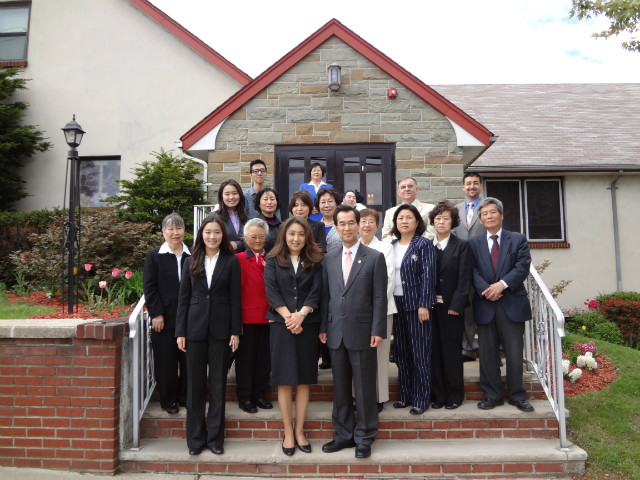
[박지선 칼럼] What is Heresy?

What is Heresy?
By Pastor Jiseon Park
Christians historically conceive of heresy as persecutions from the official Roman Catholic Church, in the form of the Spanish Inquisition, of torture and burnings at the stake. But today’s Christians conceive of heresy and heretics a little differently. Obviously the level of religious persecution that used to plague those outside of the Roman Catholic Church does not exist anymore. Instead, Christians today will simply hold personal prejudices and avoid those they perceive as “heretics.” But throughout ministry pastors are repeatedly asked, “What is Heresy?” And so, the purpose of this article is to address and examine the nature of heresy using the Bible.
If we look at the origins of the word “heresy” it comes from the Greek word, Hairesis, which has been translated as “sect, division, heresy, or faction.” The Bible has repeated references to this word. In Acts 24:5 it describes hairesis as “sect.” In Titus 3:10 hairesis is described as “division.” In 2 Peter 2:1 hairesis is described as “heresy.” And Galatians 5:20 describes hairesis as “faction.” It translated the same Greek word to mean whenever an opinion or doctrine contrary to the official beliefs and the right doctrine was asserted, or whenever someone broke away from the true path. The disciple Peter warned of such false prophets and heretics thus: “But there were also false prophets among the people just as there will be false teachers among you. They will secretly introduce destructive heresies, even denying the sovereign Lord who bought them- bringing swift destruction on themselves.” (2 Peter 2:1).In Merriam Webster’s Dictionary, the word heresy is defined as “adherence to a religious opinion contrary to church dogma, dissent or deviation from a dominant theory, opinion, or practice, and an opinion, doctrine, or practice contrary to the truth or to generally accepted beliefs or standards.” The sociological and cultural reasons why the response against heretics was so violent are many. One of which is that Christianity is a religion thatarose during a volatile time for Jews in the Roman Empire. The monotheistic nature of Christianity was contrary to the polytheistic religions of the Roman Empire. As a result, Christians were often persecuted, and within such persecution arose a desire to keep the gospel pure, to prevent the confusion of heretic teachings from diluting the gospel and its impact. For this reason, perhaps for many Christians, heretics became possibly the most serious enemy.
However, the Bible has cautioned Christians from judging others, from being too quick to criticize and denigrate others for a small deviation from their own opinions or their own perspective. The Apostle Paul in Acts 24:5 was called a heretic by the Jews, a leader of the Nazarene sect. But the Apostle Paul was responsible for writing down the majority of the New Testament. If the Apostle Paul was a heretic, a leader of a sect, in the eyes of the Jews, does that make him so? No! He contributed greatly to writing the New Testament. It is a matter of perspective, and so we should be cautious and wary of too easily disparaging those slightly different, over something as minor as musical instruments in a church, worship or praise styles, or baptism of infants, as heretics.However simultaneously, it becomes necessary to define the essential doctrines of Christianity. Actual heretics are those who deny the true church dogma, such as denying the Holy Trinity, denying Jesus Christ as our savior, denying salvation through faith, denying Jesus’ resurrection, and denying the judgment of the wicked. The Bible states that these major doctrines concerning God, Christ, Salvation, and Resurrection are the bedrock of our faith. Therefore it is necessary, and absolutely crucial for Christians to hold fast to them. To deny or refuse these tenets, and to seek to add to it, to allege for instance, that God continues to give visions and revelations, this is true heresy. For Revelations 22:18-19 states “I warn everyone who hears the words of the prophecy of this scroll: If anyone adds anything to them, God will add to that person the plagues described in this scroll.And if anyone takes words away from this scroll of prophecy, God will take away from that person any share in the tree of life and in the Holy City, which are described in this scroll.” The Bible explicitly warns us that anyone who seeks to take away or add to the Holy Bible will have no place in the Holy City, in Heaven. So to address why some of the major heretic denominations of the United States are labeled thus, let us look to the differences in their alleged tenets.
For instance, adherents of Jehovah’s Witness deny the Holy Trinity; they allege that Jesus is a human version of the Archangel Michael, and that while he was a perfect man, he was not God in the flesh. They believe that Jesus Christ did not have an immortal soul and only gained an immortal soul as a reward for his faith and obedience to God. Jehovah’s Witnesses also believe salvation is obtained through a combination of faith, good works, and obedience. Additionally, they state that Jesus’s sacrifice, his death, which ransomed Christians, do not include Adam. They also state that the Bible has been corrupted throughout the centuries, and have retranslated the Bible to support their own false teachings.
Mormons similarly also deviate greatly from the Bible. They have their own “holy book” called The Pearl of Great Price. They teach that a man can become God and that God was once a man. They believe there is a Mother goddess, and her children with God are spirit children, our forms before we were born on earth with a natural body. Jesus is neither acknowledged as the eternal son of God nor as our path to salvation. They refuse to acknowledge the Holy Trinity or the existence of a physical hell for the wicked. They state that salvation is achieved through a combination of good works and deeds, missionary work, and following Mormon teachings. They highly emphasize the importance of their Mormon teachings, such as if it had not been for Joseph Smith and “the restoration,” there would be no salvation. They believe there is no salvation without accepting Joseph Smith as a prophet of God.
Seventh Day Adventists are the final group to examine here. They are distinguished by their use of Saturday as their Holy Day of Sabbath. They have 28 Fundamental Beliefs, without which, they hold salvation cannot be achieved. Adventists uphold teachings such as baptism by immersion and the creation of the world in six literal days. They do not believe in an immortal soul- only that a soul becomes immortal when resurrected from the dead. Accordingly, they believe that the wicked will not suffer eternal torment in hell, but will be physically annihilated.They also believe prophecy is one of the gifts of the Holy Spirit still given today and that their founder, Ellen G. White was a prophet. They believe the return of Christ is imminent and have asserted several times throughout the last 100 years that a specific set date would be his return.
However, the reason why these examples of deviant, divisive denominations are examples of heresy is because they deny what is at the core, what is at the heart of Christianity. They deny the precepts, the teachings of the Holy Bible, of the Gospel. They teach practices at odds, that contradict what is written in the Bible. Gal. 1: 6-8 stated “I am astonished that you are so quickly deserting the one who called you to live in the grace of Christ and are turning to a different gospel— which is really no gospel at all. Evidently some people are throwing you into confusion and are trying to pervert the gospel of Christ. But even if we or an angel from heaven should preach a gospel other than the one we preached to you, let them be under God’s curse!” The Apostle Paul described that such teachings are not a gospel at all. Such teachings are merely employed to confuse and divert from the true path.
In conclusion, a slightly different interpretation of a minor aspect of Christianity does not deserve the harsh label of heresy, but as we have examined, those groups that corrupt and distract from the core of Christian beliefs- they are true heretics.
Profile
-New York University Graduate School (MA)
-New York University Graduate School (Ph.D. unfinished)
-Biblical Theological Seminary (M.Div.)
-현재 뉴저지 Lighthouse Church 담임 목사
이단이란 무엇인가?
기독교인들은 역사적으로 공식 로마 카톨릭교회로부터의 스페인의 종교재판,고문,화형의 형태로 행해진 박해를 이단으로 생각해왔다. 그러나 오늘날 기독교인들은 이단이나 이단자들에 대해 약간 다르게 보고 있다. 분명히 로마카톨릭 교회가 외부인들에게 고통을 가했던 정도의 종교적 박해는 더 이상 존재하지 않는다. 대신에 오늘날 기독교인들은 이단에 대해 개인적 편견을 가지고 있으며 “이단자들”이라고 인식하면 그들을 피하려고 한다. 그러나 사역하는 목회자들은 “이단이 무엇입니까?”라는 질문을 계속해서 받고 있다. 그래서 이글의 목적은 성경을 통한 이단의 본질에 대해 살펴보고자 한다.
우리가 이단 “Heresy”이라는 단어의 어원을 살펴보자면 그것은 희랍어인 아이레시스를 영어로 ”Hairesis”로 발음한데서 유래한다. 번역해보면 “교파(sect),분파(division),이단(heresy),또는 파당(faction)이라는 뜻을 가진다. 성경은 끊임없이 이 단어의 언급을 반복해왔다. 행24:5 ”종파“로, 딛3:10에서는 ”다른의견을 가진분파“, 벧후 2:1에서는 이단(heresy)으로, 갈5:20에서는“파당”으로 묘사했다. 이는 공식적인 믿음에 반(反)하는 의견 또는 교리를 주장하거나 어떤이들이 정도에서 벗어났을때를 의미하는 동일한 단어인 희랍어를 번역한 것이다. 제자 베드로는 거짓선지자들과 이단자들에 대해 다음과 같이 경고한다. “그러나 민간에 또한 거짓선지자들이 일어났었나니 이와같이 너희 중에도 거짓선생들이 있으리라. 저희는 멸망케할 이단을 가만히 끌어들여 자기들을 사신주를 부인하고 임박한 멸망을 스스로 취하는 자들이라” (벧후2:1). 미리엄 웹스터 사전(Merriam Webster’s Dictionary)에서 이단이라는 말은 “교회신조에 반하는 종교적견해, 우세한 이론,의견,관행에 대한 반대의견 또는 그로부터의 일탈, 일반적으로 인정하는 교리나 기준에 반하는 의견이나 신조 관행을 고수하는것”으로 정의하고 있다.
왜 그토록 이단자들을 응징하는데에 가혹했었는지는 사회적으로나 문화적으로 많은 이유들이있다. 그이유중 하나는 로마제국에서 유대인들에게 불안정한 시대에 기독교가 발생했다는 점이다. 기독교의 일신교적인 성격은 로마제국의 다신교에 반(反)하는 것이었다. 그러한 결과로서 기독교인들은 자주 박해를 받았고, 그러한 박해속에서 순수복음을 지키려는 욕구와 복음을 희석시키고 그러한 영향을 미치는 이단의 가르침의 혼잡함을 방지하려는 열망이 일어났다. 이러한 이유 때문에 많은 기독교인들이 이단들을 가장 심각한 적으로 여기게 된 것이다. 그러나 성경은 기독교인들이 그들 자신의 의견이나 견해와 조금만 달라도 너무 빨리 비판하고 폄훼하는 것과 다른이들을 판단하는것에 대해 주의를 주고 있다. 사도바울은 행24:5에 보면 유대인들에 의해 이단자요 나사렛이단의 괴수로 불렸다. 그러나 사도바울은 대부분의 신약성경을 책임있게 기록했다.만일 사도바울이 유대인의 눈에 비췬대로 이단자요 분열된 당파의 괴수였다면 그것이 가능했겠는가? 아니다. 그는 신약성경을 기록하는 것에 지대한 공헌을했다. 그것은 일종의 관점의 문제이고, 우리는 그러므로 이단자들처럼 교회에서 쓰는 악기나 경배와 찬양의 형태,유아세례 등에서 자신들과 조금 다르다고 해서 다른 사람들을 너무쉽게 비판하는 것을 경계하고 조심해야 한다. 하지만 동시에 기독교의 기본 교리에 대해 정의해 볼 필요가 생긴 것이다. 사실상 이단자들은 성삼위 일체를 부인하거나, 예수그리스도가 우리의 구세주이심을 부인하거나, 믿음을 통한 구원을 부인하거나, 예수의 부활을 부인하거나, 악한자들의 심판을 부인하는등 근본교리를 부인하는 자들이다. 성경은 하나님과 예수님 .구원,부활에 관계되는 주요교리들이 우리믿음의 지지기반임을 설명하고 있다. 그러므로 기독교인들이 그러한 것들을 굳게 잡는 것이 당연하며 절대적으로 필요하다. 이러한 교리를 부정하고 하나님께서 지금도 비젼과 계시를 주신다는 등의 말을 하면서 성경에 무언가를 덧붙여 설명하는 것이 진짜 이단인 것이다. 계22:18~19에 보면 “내가 이책의 예언의 말씀을 듣는 각인에게 증거하노니 만일 누구든지 이것들 외에 더하면 하나님이 이책에 기록된 재앙들을 그에게 더하실터이요, 만일 누구든지 이책의 예언의 말씀에서 제하여 버리면 하나님이 이책에 기록된 생명나무와 및 거룩한 성에 참예함을 제하여 버리시리라”라고 말씀하셨다. 성경은 분명히 “성경외에 제하거나 더하는 자는 하늘에 있는 거룩한 성에 들어갈 수 없음을 경고하고 있다. 그래서 미국교단에서 이단으로 규정하고 있는 몇몇 주요 교단들에 대해 그들 교리의 다른점들을 살펴보고자 한다.
예를 들면 여호와증인의 신봉자들은 성삼위 일체를 부인한다. 그들은 예수님이 미가엘 천사장의 인간형상이며 그는 완벽한 인간이었으나 실제로 신은 아니었다고 주장한다. 그들은 예수그리스도가 불멸의 영을 가지지 않았었으나 단지 하나님께 대한 믿음과 순종의 댓가로 불멸의 영을 얻었다고 믿는다. 여호와 증인들은 또한 구원은 믿음과 선행, 순종의 조합을 통해 얻는다고 믿는다. 게다가 그들은 기독교인들의 죄값으로 예수의 희생과 죽음이 있었으나 그것이 아담에게는 해당되지 않는다고 믿는다. 그들은 또한 성경이 세기를 거쳐오면서 변질되었으며 거짓가르침을 합리화 시키기 위해 나름대로 재해석되어 기록되었다고 믿는다.
몰몬교도 유사하게 성경에서 벗어나 있다. 그들은 “값진 진주” (The Pearl of Great Price)라 불리는 그들만의 정경을 가지고 있다. 그들은 사람이 신이 될 수 있고 신도 한때 사람이었다고 가르친다. 그들은 하나님 어머니를 믿으며 하나님과 함께한 그녀의 자녀들이 영의 자녀들이며 그것이 우리가 인간의 몸을 가지고 이땅에 태어나기전 우리의 형상이라고 말한다.예수를 영원한 하나님의 아들로 인정하지 않으며 구원의 통로로 인정하지도 않는다. 그들은 성삼위 일체를 부인하며 악한자들을 위한 실존 지옥의 존재를 인정하기를 거부한다. 그들의 구원이 선한일과 행함, 선교의일 ,몰몬의 가르침을 따른는것의 결합을 통하여 성취된다고 말한다. 그들은 교주 죠셉 스미스(Joseph Smith)와 신앙회복이 없다면 구원도 없다는 몰몬의 가르침을 훨씬더 강조한다. 그들이 신의 예언자로서 죠셉 스미스를 받아들이지 않는다면 구원도 없다고 믿고 있다.
제7일 안식일 재림교를 마지막으로 살펴보자. 그들은 특별히 안식일을 토요일로 정한 것이 다른 교들과 차별화 된다. 그들은 28개의 기본믿음의 신조를 가지고 있는데 이를 지키지 못하면 구원을 받을수 없다고 말한다. 안식교인들은 침례세례와 문자그대로 6일에 천지창조가 되었다는 것을 주장한다. 그들은 영혼불멸을 믿지 않으며 단지 영혼이 죽은자로부터 부활할 때 불멸하게 된다고 믿는다. 그들은 악한자들은 지옥에서 영원히 고통당하는 것이 아니라 육체적으로 전멸된다고 믿는다, 그들은 오늘날에도 예언이 성령의 선물중의 하나라고 믿으며 그들 종교의 설립자 엘렌 지 화이트(Ellen G White)가 예언자였다고 믿는다. 그들은 예수의 재림이 임박하며 지난 100년에 걸쳐 몇차례씩이나 예수재림의 구체적인 날짜를 선포해왔다. 하지만 이런 비정상적이고 분열을 초래하는 교리들이 이단의 예가 되는 이유는 그들이 철저히 기독교의 핵심을 부인하기 때문이다. 그들은 성경의 교훈과 복음의 가르침을 부인한다. 그들은 성경에 기록된것과 모순되는 즉 대항하는 관례들을 가르친다. 갈1:6~8 “그리스도의 은혜로 너희를 부르신 이를 이같이 속히 떠나 다른 복음을 좇는 것을 내가 이상히 여기노라. 다른복음은 없나니 다만 어떤 사람들이 너희를 요란케하여 그리스도의 복음을 변하려 함이라. 그러나 우리나 혹 하늘로부터 온 천사라도 우리가 너희에게 전한 복음외에 다른복음을 전하면 저주를 받을 지어다” 라고 언급하고 있다.
결론적으로 사도 바울은 그러한 가르침은 복음이 아니라고 말했다. 이는 단지 바른길을 가는 것을 혼란스럽게 하고 곁길로 가게 하는 것이다. 기독교의 한단면에 대해 약간 다른 해석을 한다고 해서 이단의 냉험한 딱지를 붙일것이 아니라 우리가 지금까지 알아본것처럼 기독교의 믿음의 핵심을 혼란스럽고 산만하게 만들고 곁길로 가게 만드는 무리들 그들이 틀림없는 이단들인 것이다.
번역 – 임상애 사모







